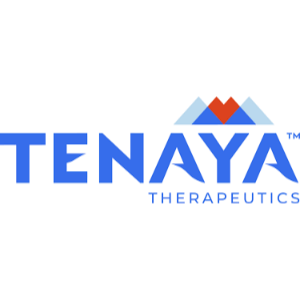Tenaya Therapeutics Publishes Preclinical Data in Circulation Highlighting the Clinical Potential of Cellular Reprogramming for Cardiac Regeneration
Novel AAV-Based Approach Regenerated Myocardial Cells and Demonstrated Durable Benefit to Heart Function in Rodent Model of Chronic Cardiac Ischemic Injury
SOUTH SAN FRANCISCO, Calif., Oct. 02, 2023 (GLOBE NEWSWIRE) -- Tenaya Therapeutics, Inc. (NASDAQ: TNYA), a clinical-stage biotechnology company with a mission to discover, develop and deliver potentially curative therapies that address the underlying causes of heart disease, today announced the publication of preclinical research in the October 3, 2023 issue of the American Heart Association’s (AHA) journal, Circulation. The article, titled “Improved Cardiac Function in Postischemic Rats Using an Optimized Cardiac Reprogramming Cocktail Delivered in a Single Novel Adeno-Associated Virus,” details Tenaya’s initial success in cardiac cellular regeneration utilizing a single adeno-associated viral (AAV) vector to deliver specific combinations of genes to reprogram cells in the heart following ischemic injury.
“In an effort to restore contraction to a heart weakened by myocardial infarction, we’ve developed an elegant approach to reprogram select cardiac cells that combines specific genes and regulatory elements into a single adeno-associated vector. Using this approach in a model of chronic ischemic injury we successfully achieved – for the first time – dose-dependent and durable improvements in heart function through cardiac regeneration,” said Tim Hoey, Ph.D., Chief Scientific Officer of Tenaya. “Significant molecular engineering challenges needed to be overcome to make cardiac cellular regeneration feasible for therapeutic development and this work represents a major step forward in advancing the potential application of our cellular reprogramming approach in a clinical setting.”
An estimated four million people in the U.S. are living with heart failure associated with a prior heart attack, or myocardial infarction (MI). When an MI occurs, cardiomyocytes (CMs), the heart cells responsible for contraction, are lost, while cardiac fibroblasts (CFs), the heart cells that form connective tissue, multiply and contribute to the formation of scar tissue and fibrosis. The loss of CMs following MI permanently impairs heart contraction, leading to heart failure and potentially fatal arrhythmias, and is estimated to result in the death of approximately
Tenaya researchers achieved several breakthroughs in their effort to create a cellular reprogramming product candidate with potential clinical and commercial viability:
- Tenaya identified and selected a proprietary combination of three genes to drive the efficient conversion of CFs into CMs that is small enough to be delivered in a single AAV vector.
- Tenaya researchers engineered a novel AAV capable of targeting CFs with increased infectivity compared to parental AAV serotypes.
- Tenaya researchers incorporated regulatory elements to focus robust expression in CFs and to de-target expression of this combination of genes in both preexisting and newly created CMs.
As detailed in the Circulation article, this novel AAV reprogramming construct, when injected into the hearts of acute mouse MI and chronic rat MI models, achieved significant and dose-dependent improvement in cardiac functions. This effect was sustained out to 29 weeks in the chronic rat MI model. This is the first time such a result has been achieved in a chronic model of MI after formation of a permanent scar. To further validate the efficacy of Tenaya’s reprogramming AAV construct, a series of controls in the in vivo studies were performed that supported new CM formation as the underlying mechanism for functional improvement.
“Tenaya was founded with the aim of tackling some of the toughest challenges contributing to heart disease, the leading cause of death in the world,” said Faraz Ali, Tenaya’s Chief Executive Officer. “Our ongoing preclinical efforts to advance cardiac cellular reprogramming exemplifies the differentiated capabilities of our Research team and demonstrates our commitment to pursuing innovative and modality-agnostic drug discovery alongside our pipeline of more advanced, clinical-stage product candidates.”
This program is currently at the candidate selection stage. Tenaya is continuing its cardiac reprogramming research in preclinical studies of large animals using Tenaya’s proprietary injection catheter with support from grant funding from the California Institute for Regenerative Medicine (CIRM).
About Tenaya’s Cellular Reprogramming Research
Tenaya is developing an AAV-based approach to cellular regeneration that involves converting (or reprogramming) existing cardiac fibroblasts within the heart into new cardiomyocytes in order to replace cells permanently lost due to heart attack, or myocardial infarction. These efforts build on foundational work by Tenaya co-founder, Deepak Srivastava, M.D., President of the Gladstone Institute of Cardiovascular Disease and Tenaya Board member and Chair of Tenaya Scientific Advisory Board. Prior Tenaya presentations have consistently demonstrated promising results of this approach in multiple disease models, including primary human CFs, mice, rats, and most importantly in pigs with human-sized hearts. As part of the company’s efforts, Tenaya also has developed a novel intra-endomyocardial injection catheter for more precise delivery of therapeutic payloads to the location of MI injury in human subjects during clinical studies.
About Tenaya Therapeutics
Tenaya Therapeutics is a clinical-stage biotechnology company committed to a bold mission: to discover, develop and deliver potentially curative therapies that address the underlying drivers of heart disease. Leveraging its integrated and interrelated Gene Therapy, Cellular Regeneration and Precision Medicine platforms and proprietary core capabilities, the company is advancing a pipeline of novel therapies with diverse treatment modalities for rare genetic cardiovascular disorders and more prevalent heart conditions. Tenaya’s most advanced candidates include TN-201, a gene therapy for MYBPC3-associated hypertrophic cardiomyopathy (HCM), TN-401, a gene therapy for PKP2-associated arrhythmogenic right ventricular cardiomyopathy (ARVC), and TN-301, a small molecule HDAC6 inhibitor being initially developed for heart failure with preserved ejection fraction (HFpEF). Tenaya also has multiple early-stage programs progressing through preclinical development. For more information, visit www.tenayatherapeutics.com.
Forward Looking Statements
This press release contains forward-looking statements as that term is defined in Section 27A of the Securities Act of 1933 and Section 21E of the Securities Exchange Act of 1934. Statements in this press release that are not purely historical are forward-looking statements. Words such as “potential,” “commitment,” and similar expressions are intended to identify forward-looking statements. Such forward-looking statements include, among other things, the clinical and commercial potential of Tenaya’s cellular reprogramming approach and Tenaya’s commitment to pursuing innovative and modality-agnostic drug discovery alongside the company’s clinical-stage product candidates. The forward-looking statements contained herein are based upon Tenaya’s current expectations and involve assumptions that may never materialize or may prove to be incorrect. These forward-looking statements are neither promises nor guarantees and are subject to a variety of risks and uncertainties, including but not limited to: the potential for any clinical trial results to differ from preclinical, interim, preliminary, topline or expected results; risks associated with the process of discovering, developing and commercializing drugs that are safe and effective for use as human therapeutics and operating as an early stage company; Tenaya’s ability to develop, initiate or complete preclinical studies and clinical trials, and obtain approvals, for any of its product candidates; Tenaya’s ability to raise any additional funding it will need to continue to pursue its business and product development plans; Tenaya’s reliance on third parties; Tenaya’s ability to successfully operate a manufacturing facility for clinical or commercial supply; Tenaya’s commercialization and marketing capabilities and strategy; the loss of key scientific or management personnel; competition in the industry in which Tenaya operates; Tenaya’s ability to obtain and maintain intellectual property protection for its product candidates; general economic and market conditions; and other risks. Information regarding the foregoing and additional risks may be found in the section entitled “Risk Factors” in documents that Tenaya files from time to time with the Securities and Exchange Commission. These forward-looking statements are made as of the date of this press release, and Tenaya assumes no obligation to update or revise any forward-looking statements, whether as a result of new information, future events or otherwise, except as required by law.
Contacts
Contact
Michelle Corral
VP, Corporate Communications and Investor Relations
IR@tenayathera.com
Investors
Julie Seidel
Stern Investor Relations
Julie.seidel@SternIR.com
Media
Wendy Ryan
Ten Bridge Communications
wendy@tenbridgecommunications.com










